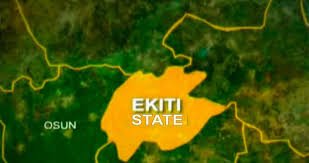
Senator Ike Ekweremadu
Anselm Okolo (Guest Writer)
In Nigeria’s Fourth Republic, few political figures have shaped the democratic journey as profoundly as Senator Ike Ekweremadu. From his formative years in public service to his pivotal role in constitutional reform, Ekweremadu’s career reflects resilience, visionary leadership, and a deep commitment to grassroots empowerment.
For two decades, he represented Enugu West Senatorial District with distinction. For twelve of those years, he held the influential office of Deputy President of the Nigerian Senate—a tenure that underlines his rare political longevity and the trust reposed in him by colleagues and constituents.
A Steward of Constitutional Reform Perhaps his most enduring legacy lies in his extensive work on Nigeria’s constitutional development. As Chairman of the Senate Committee on the Review of the 1999 Constitution, Senator Ekweremadu led critical national dialogues and legislative processes that addressed some of the foundational questions of Nigeria’s federal structure.
Under his leadership, constitutional amendment processes began to assume a more inclusive and transparent character. His push for true federalism, state police, decentralized governance, and electoral reform positioned him as a thoughtful statesman with a forward-looking vision for Nigeria. He understood that a functional and fair constitution was central to national unity, economic development, and political stability.
These reform efforts, while often encountering institutional resistance, created vital national conversations and incremental progress in recalibrating the Nigerian federation.
His innovative introduction of a piecemeal approach to the components of the proposed amendments in the Constitution, to prevent a repeat of the situation where, for just one item—the contentious issue of autonomy for State Houses of Assembly—ironically vetoed by some Speakers of the State Assemblies, everything was thought to be proceeding smoothly with his pioneering and radical proposals for amendments to the 1999 Constitution, remains a template for addressing the issue of constitutional amendments even today.
Champion of Grassroots Development Beyond Abuja’s chambers, Ekweremadu was a relentless advocate for grassroots development, especially in Enugu State.
In his native Mpu community in Aninri LGA, and across Enugu West, he spearheaded numerous development projects—ranging from road construction to educational infrastructure, rural electrification, water projects, and health initiatives.
Through his Ikeoha Foundation, he provided scholarships to hundreds of indigent students across Nigeria, supported widows and rural women through skill acquisition programs, and created access to micro-credit for small-scale entrepreneurs.
These efforts were not mere token gestures; they were sustained interventions that empowered communities and uplifted lives, helping many youngsters to become graduates in diverse fields of study. Architect of Enugu West’s Political Transformation Under his political stewardship, Enugu West transformed from a peripheral district to a center of influence within Enugu State and the Southeast at large.
Ekweremadu nurtured a generation of leaders, promoted merit-based representation, and helped position his senatorial district as a vital player in both state and national politics. His unique brand of inclusive politics—bridging ethnic, religious, and generational divides—earned him widespread respect.
Many who emerged under his political mentorship have gone on to serve in critical public offices, carrying forward the values of service and competence. Trials, Lessons, and the Measure of a Man No public life, however, is without its trials. In 2022, Senator Ekweremadu and his family were thrust into a painful legal ordeal in the United Kingdom, culminating in a conviction related to organ trafficking.
It was a deeply human story—one of a father’s desperation to save his ailing daughter, and one that sparked debate across Nigeria and beyond. While the courts rendered their judgment, many Nigerians saw in the episode a reminder of the imperfections of even the most revered public servants.
Yet even in the face of personal hardship and public scrutiny, Ekweremadu maintained a dignified silence, and his years of service continued to draw empathy and reflection from citizens who remembered his numerous sacrifices.
This chapter, however sobering, does not erase the years of dedicated service he rendered to the nation. Rather, it adds a human layer to a man who, like all who strive in the public eye, navigated the complex terrain of leadership, personal responsibility, and family loyalty.
A Legacy Beyond the Senate as Nigeria continues to grapple with the demands of reform, the legacy of Ike Ekweremadu remains a point of reference. His work on constitutional amendments laid the groundwork for ongoing debates around decentralization and governance.
His humanitarian efforts continue to resonate in communities he touched. And his story, in both triumph and trial, serves as a profound lesson in public service, perseverance, and the burdens of leadership.
History will remember Senator Ike Ekweremadu not merely for the offices he held, but for the values he espoused: service without noise, reform without fear, and compassion without borders.
In a country often yearning for visionary leadership, his story offers both a mirror and a map—showing us where we’ve been, and where we might yet go.
About the Writer:
Anselm Okolo is a journalist based in Abuja. He can be reached via 08087890337 or ifediche5@gmail.com.




